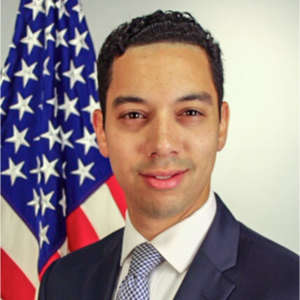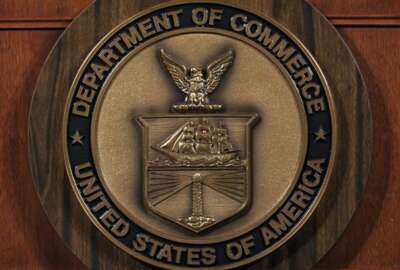
Moses held up the cyber mantle at OMB office
Josh Moses left his role at OMB’s cyber branch chief on Nov. 30 after more than three years to take a job with the PricewatershouseCoopers commercial division.
Few would doubt that Josh Moses held up and enhanced the reputation of those who came before him as the Office of Management and Budget’s chief of the cyber office.
Moses, who left his role on Nov. 30 after more than three years to take a job with the PricewatershouseCoopers commercial division, was known for his ability to easily shift between the policy and technical worlds.

“Josh has continued to build on the work that the OMB Cyber team and the Office of the Federal CIO/CISO have done for the last four years. The business processes he has put in place will continue to elevate the level of security across federal departments and agencies for years,” said Ross Nodurft, a former OMB cyber chief and now a vice president of risk management at OneWorld Identity. “Thanks to him, our CIOs and CISOs are focused on measuring outcomes as opposed to reacting to compliance regimes. As a leader in the Federal CIO’s office, Josh truly cared about the mission of the cybersecurity. Through his leadership, agencies elevated their ability to manage the multitude of cyber risks that they face every day.”
Moses spearheaded the first-ever governmentwide risk determination report, which established a baseline for all agencies and came up with specific plans to address these issues.
“Josh was a huge contributor to and leader of the OMB Cyber Team and the Office of the Federal CIO/CISO. The biggest compliment I can give is that after his four years, Federal cybersecurity is better today because of his efforts,” said Joe Stuntz, a former OMB cyber chief and now a principal with OneWorld Identity. “His focus on the federal workforce and his emphasis on real risk management will continue to pay dividends for years and the OMB Cyber team is stronger and better prepared for the future thanks to his leadership, but will certainly miss his positivity and sometimes good jokes.”
Moses also worked with the Department of Homeland Security to address new goals and approaches to the Federal Information Security Management Act (FISMA) to give agencies more flexibilities to achieve a final goal versus following a prescriptive set of requirements.
Moses joined the government in 2009 as a program manager at the Treasury Department’s Special Inspector General for Troubled Asset Relief Program (TARP). He then moved to the Defense Department’s Office of the Inspector General and then to Amtrak’s oversight office.
“Josh’s contributions and service to the federal government’s cybersecurity mission are extremely valued,” said Federal CIO Suzette Kent in an email statement. “I want to thank him for his hard work and effort in advancing the president’s cybersecurity agenda.”
It’s unclear who will replace Moses as the cybersecurity division leader.
Commerce exec heading back to consultancy
Along with Moses, another impactful federal employee is heading to the private sector.
Glenn Davidson, who was the Commerce Department’s executive director of Enterprise Services for the last three years, joined Deloitte’s human capital transformation practice.
Davidson led the agency’s effort to consolidate all back-office functions since 2015. He did that by capturing the total cost of ownership for procurement, human resources, technology and financial management, did a comparative analysis of public and private sector companies and detailed what it would cost for people, process and technology to improve these administrative services.
Related Stories

Trump administration’s push for shared services should start by looking at Commerce

DHS S&T cyber division hitting its stride with research transition, start-up projects
This was Davidson’s first experience in the federal government, having worked with consulting firms Accenture and KPMG as well as being chief of staff to the governor of Virginia in the early 1990s.
Molly Cain, DHS’ director of venture, also left federal service last month. According to her LinkedIn page, Cain’s two-year appointment ended, which was the reason for her leaving.
During her time at DHS, Cain led the effort to launch the Office of Innovation, which seeks to pilot several assumptions and initiatives, and serve as a bridge between venture capital, startup, academia and Fortune 500 companies.
Finally, Shane Barney was promoted to chief information security officer of DHS’ U.S. Citizenship and Immigration Services directorate. Barney had been deputy CISO since May 2016. He has been with USCIS since 2014 when he joined as a chief of the cyber intelligence branch.
Read more of the Reporter’s Notebook
Copyright © 2025 Federal News Network. All rights reserved. This website is not intended for users located within the European Economic Area.
Jason Miller is executive editor of Federal News Network and directs news coverage on the people, policy and programs of the federal government.
Follow @jmillerWFED




